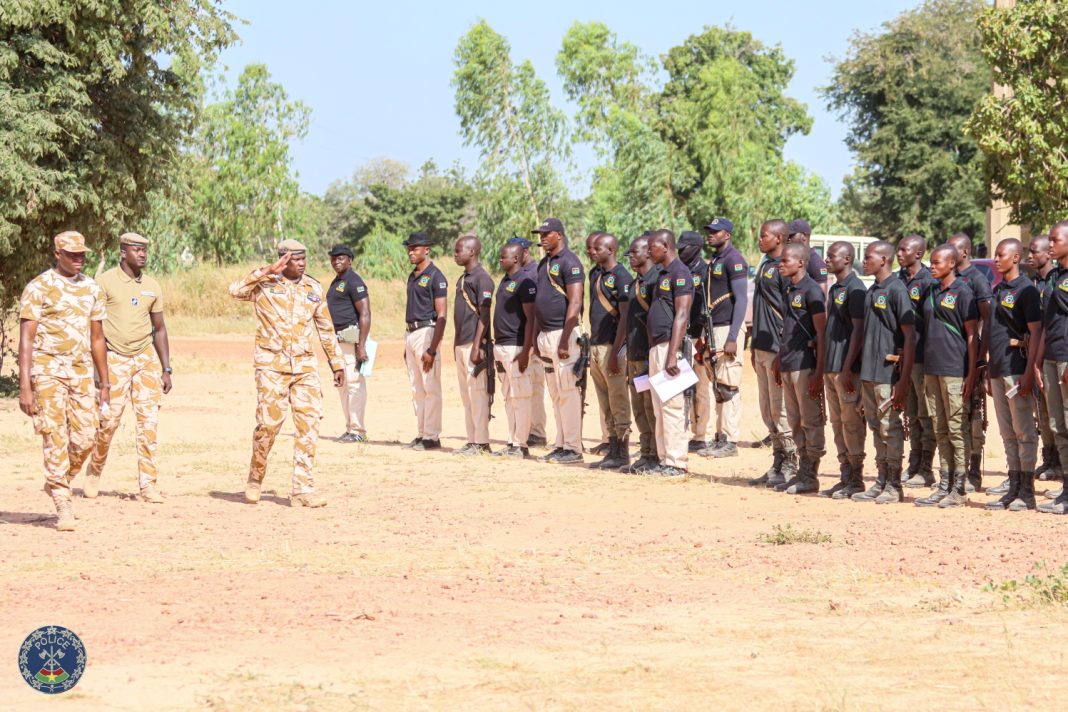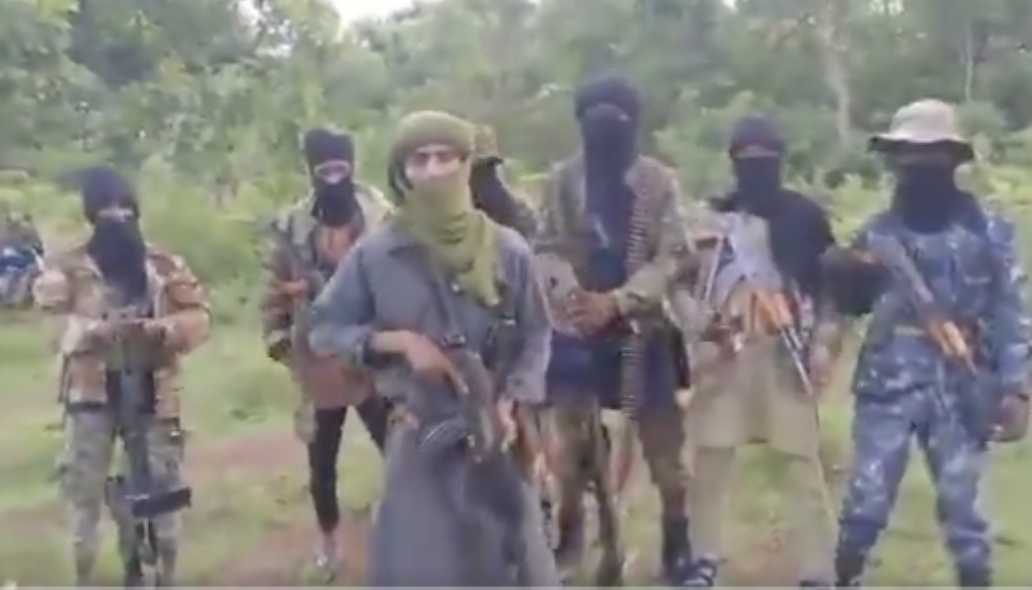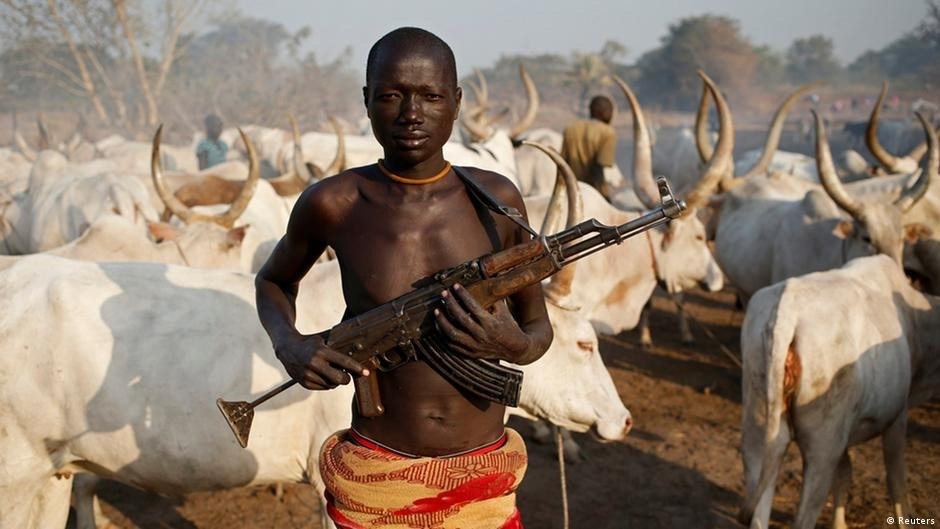
Mass Civilian Defense Force Recruitment Raises Jihadist Threat to Civilians in Burkina Faso
Mass Civilian Defense Force Recruitment Raises Jihadist Threat to Civilians in Burkina Faso
In October 2022, the ruling junta of Burkina Faso began a campaign to recruit 50,000 civilians to join its volunteer defense force, known as the Volontaires pour la Défense de la Patrie (VDP) (Jeune Afrique, November 1, 2022). The junta claimed that it needs these recruits to overpower the significant jihadist threat posed by both Islamic State in Sahel Province (also known as Islamic State in Greater Sahara (ISGS)) and al-Qaeda-affiliated Jama’at Nasr al-Islam wal Muslimin (JNIM). In a wave of patriotism, 90,000 civilians signed up and the VDP has become the centrepiece of the junta’s counter-terrorism strategy (DW, December 30, 2022).
Why the VDP?
These new recruits have proven crucial to boosting morale in a country where many people are weary from a decade of combat against jihadist groups. Junta leader Ibrahim Traoré made a series of well-received speeches to civilians and new recruits, declaring that the population cannot sit idly by while the country collapses under jihadist insurgencies (Le Faso, January 11). Jihadists controlled more than 40 percent of the country when Traoré seized power from previous junta leader, Paul-Henri Damiba, in September 2021 (ISS Africa, December 12).
The junta’s profound confidence in the VDP has further boosted national morale, especially since January, when the junta evicted 400 French special forces soldiers, who had been operating under the aegis of Operation Sabre. Traoré has pledged to instead depend wholly on the VDP and the Burkinabe military as a means of regaining ground from jihadist groups (RFI, January 25). This surprised some observers, who thought the next step would be to deploy operatives from the Russian private military company (PMC) Wagner throughout the country, as had occurred just a year before in neighbouring Mali. Rumors had been spreading that Burkina Faso was eager to work with Wagner since Traoré seized power in September, a move which had been praised by Wagner’s leader, Yevgeny Prigozhin, while the Burkinabe prime minister was visiting Russia in December. However, for the time being Burkina Faso’s leaders have asserted that they do not intend to replace one foreign force (France) with another (Russia) and instead intend to use the VDP as its own national version of Wagner. Perhaps as a result of this, new VDP recruits tend to feel optimistic and patriotically attached to the fight against jihadists. This is a sentiment that has long been lacking from the Burkinabe military, which has suffered from a lack of resources and training, consequently facing repeated defeats at the hands of jihadist forces (RFI, November 12, 2022).
The VDP also has technical advantages over the military, which finds itself increasingly divided in Burkina Faso following two coups in 2022, with infighting over national leadership and the state counter-terrorism strategy continuing to persist (Africa Confidential, October 6, 2022). Indeed, those who join the VDP often originate from the villages where they are fighting—unlike a lot of soldiers—and therefore have a better knowledge of the local area than troops normally would (TV5 Monde, December 26, 2021). This can make a considerable difference against jihadist groups, who are also well-versed in the local terrain in a way that allows them to easily outmaneuver poorly trained and equipped “non-local” troops.
Beyond structural advantages inherent to the VDP, there were also a series of minor gains made by the government after the VDP strategy was announced. This suggests that the recruitment drive and newfound determination within the ranks of the security forces is having some effect. For example, several towns have been recaptured from jihadists in recent months, including Solenzo and Falagountou (Afrique Soir, January 28; APA News, January 13).
What’s the Catch?
The deployment of VDP forces has, however, been contentious ever since it was first announced under then President Roch Marc Kabore in January 2020 (TV Monde, June 7, 2021). Concerns were quickly raised that recruitment was not inclusive, because the vast majority of those who signed up belonged to the Mossi, Dozo, or Gourmantché communities; the communities involved in recruitment were largely those living relatively stable lives and therefore were able to join the VDP, rather than people who had been displaced by conflict (Clingendael, March 9, 2021). This led to a recruitment bias both in terms of circumstances but also ethnicity, which raises a number of problems around VDP targeting in counterterrorism operations, which have overwhelmingly been aimed at Fulani communities (Clingendael, March 9, 2021).
Fulani people have long been stigmatized for their alleged affiliation with jihadist groups in the Sahel. In particular, Katiba Macina—a faction of JNIM that is prominent in central Mali—is largely comprised of and seeking to attract Fulani people. Indeed, the group’s stated aim is to rebuild the pre-colonial Macina Empire, which mostly consisted of pastoralist Fulanis. The use of propaganda by some jihadist groups to capitalize on Fulanis’ frustration over their perceived marginalization by local governments (who allegedly favor sedentary farmers over the pastoralist Fulani) has heightened the perception that jihadists in the Sahel are largely of Fulani origin. However, the fact that the VDP targets Fulanis almost exclusively has likely exacerbated this dynamic, further isolating Fulanis and pushing them towards jihadists.
The stigmatization of Fulanis was already detrimental to Burkina Faso’s counter-terrorism efforts before Traoré’s new VDP recruitment drive. This raises questions over whether so many additional civilians being armed will amplify existing challenges. The lack of training given to new VDP recruits—normally only two weeks—and the lack of military oversight of the VDP in the areas in which the latter normally operates may increase the likelihood of abuses occurring (DW, December 30, 2022). Indeed, rights groups have raised concerns that the VDP has already been involved in a series of attacks on civilians since the start of 2023 (France 24, January 3). Some of these attacks have allegedly been severe, such as one instance where the VDP was accused of massacring 28 civilians in Nouna, Kossi Province (France 24, January 3). These kinds of attacks increase the risk of intercommunal conflict and are likely to further augment recruitment opportunities for jihadist groups.
Besides this, there is an increasing risk that the jihadist groups in Burkina Faso will retaliate against civilians for their role in the VDP. JNIM released a video in November 2021 warning that communities promoting VDP recruitment and aiding the junta would face reprisals (Le Monde, January 20). As such, there is a high risk that VDP security posts and communities believed to be working with the VDP will be targeted going forward. Indeed, there have already been several attacks explicitly targeting the VDP this year (Le Figaro, January 20).
There is also a risk that JNIM will pivot towards a strategy that singles out civilians, particularly in mass kidnapping attacks, to counter VDP expansion. On January 12-13, for example, more than 50 women were kidnapped from Arbinda, Soum Province (Le Faso, January 22). The attack was not claimed, but was highly likely to be connected to jihadists—particularly JNIM, which has strongholds in the area. The incident marked the first time armed groups had mounted a mass abduction in Burkina Faso, and suggested a change of tactics from ambushes and armed attacks, which have historically been more common. It is highly probable that jihadists will continue such attacks as a means of undermining VDP recruitment and gaining information about communities that are working closely with the VDP.
Conclusion
Over the coming months, mass casualty attacks on civilians are more likely to occur, particularly in northern and eastern Burkina Faso. This includes the Nord, Sahel, Centre-Nord, Est, and Centre-Est regions, where jihadists already have a strong presence and will want to prevent any efforts by the government to retake territory with their new VDP recruits. The security forces are likely to be limited in their ability to prevent these attacks, as highlighted by the recent major defeats at the hands of jihadists, including an ambush on a military unit in Oudalan province in the Sahel region in February, which left 51 soldiers dead. Not only were they lacking in resources and equipment even before the creation of the VDP, they are also unable to access or move resources to many areas of the north, which have been blockaded by jihadist forces for months. Indeed, the women who were kidnapped in Arbinda were out foraging for food because the area had been blockaded, which severely limited food supplies. As assaults on civilians mount and the government fails to assist its new VDP fighters in battles against better-armed jihadists, the wisdom of introducing yet more armed combatants into this crisis will likely be questioned. This will be particularly so if VDP members—armed with government weaponry—gradually decide they would benefit instead from fighting for the better-equipped and sometimes better-funded jihadists.


